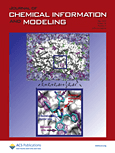
Journal of Chemical Information and Modeling
Scope & Guideline
Navigating the Future of Chemical Information Science.
Introduction
Aims and Scopes
- Computational Drug Discovery:
Research often involves the application of computational techniques in drug discovery processes, including virtual screening, molecular docking, and structure-based design of inhibitors. - Molecular Dynamics and Simulations:
A significant focus on molecular dynamics simulations to explore the behavior of biomolecules, understand interactions, and study conformational changes. - Machine Learning in Chemistry:
Integration of machine learning approaches for predicting molecular properties, enhancing computational efficiency, and improving the accuracy of chemical informatics. - Chemical Informatics and Data Mining:
Utilization of data mining techniques to extract meaningful information from chemical databases, facilitating the design and optimization of chemical compounds. - Structure-Activity Relationship (SAR) Studies:
Investigations into the correlations between chemical structure and biological activity, often leading to insights that guide the design of new therapeutic agents. - Multiscale Modeling:
Research that combines various modeling techniques, from quantum mechanics to coarse-grained approaches, to understand complex chemical and biological systems.
Trending and Emerging
- AI and Machine Learning Integration:
A significant trend is the increasing integration of artificial intelligence and machine learning techniques in various aspects of chemistry, including drug discovery, molecular property predictions, and chemical synthesis optimization. - Enhanced Drug-Target Interaction Predictions:
Emerging methodologies focus on accurately predicting drug-target interactions, with an emphasis on developing models that consider both structural and dynamic aspects of proteins and ligands. - Multiscale and Hybrid Modeling Approaches:
There is a growing interest in multiscale modeling that combines quantum mechanical, molecular mechanical, and coarse-grained approaches to study complex biochemical systems. - Focus on Biologics and Biopharmaceuticals:
Increasing attention is being paid to biologics, including the computational modeling of protein-protein interactions, antibody design, and the development of new therapeutic peptides. - Sustainable Chemistry and Green Methods:
Research initiatives are increasingly focusing on sustainable chemistry, aiming to develop eco-friendly methodologies and materials, as well as exploring the environmental impacts of chemical processes.
Declining or Waning
- Traditional QSAR Models:
The reliance on traditional quantitative structure-activity relationship (QSAR) models has decreased as machine learning approaches gain traction, leading to a decline in publications centered solely on classical QSAR methodologies. - Biophysical Studies without Computational Insights:
Papers focusing exclusively on experimental biophysical studies without integrating computational modeling or simulations are becoming less common, as the field increasingly values interdisciplinary approaches. - Static Structural Analysis:
Research emphasizing static structural analysis of compounds, without consideration for dynamic behavior or interactions, is waning as the community shifts towards understanding molecular flexibility and dynamics. - Single-Method Approaches:
There is a noticeable decline in studies that apply only one computational methodology, as the field increasingly adopts hybrid approaches that combine multiple techniques for more comprehensive insights.
Similar Journals

Moroccan Journal of Chemistry
Exploring the Frontiers of Chemistry in Morocco and Beyond.Moroccan Journal of Chemistry, published by the University Mohammed Premier Oujda, serves as a pivotal platform for researchers and professionals in the field of chemistry, particularly focusing on diverse and emerging areas within the discipline. Established in 2018, this open-access journal facilitates widespread dissemination of scholarly articles, ensuring that cutting-edge research reaches a global audience. With an ISSN of 2351-812X and categorized in the Q3 quartile for miscellaneous chemistry in 2023, the journal maintains rigorous peer-review standards while fostering an inclusive environment for scientific dialogue. Located in Morocco, it aims to bridge local and international research communities, contributing to the advancement of knowledge in chemistry. As it continues to grow, the Moroccan Journal of Chemistry remains an essential resource for students, educators, and professionals eager to stay abreast of the latest developments in the field.
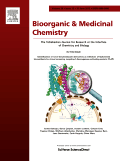
BIOORGANIC & MEDICINAL CHEMISTRY
Unveiling Breakthroughs in Medicinal ChemistryBIOORGANIC & MEDICINAL CHEMISTRY, published by Pergamon-Elsevier Science Ltd, is a prominent journal in the fields of biochemical research and drug discovery, with an ISSN of 0968-0896 and an E-ISSN of 1464-3391. Established in 1993, it has garnered respect and recognition, evidenced by its categorization in various quartile ranks across 2023, including Q2 in Clinical Biochemistry and Pharmaceutical Science. It holds significant Scopus rankings, placing it in the 75th percentile in Pharmaceutical Science and 74th percentile in Organic Chemistry, highlighting its influential contributions to ongoing research and developments. This journal provides a platform for disseminating advancements in bioorganic and medicinal chemistry, focusing on innovative methodologies, therapeutic advancements, and molecular pharmacology. Although it does not follow an open-access model, it remains a key resource for researchers, professionals, and students aiming to stay at the forefront of scientific discovery in the UK and beyond. The journal’s commitment to enhancing knowledge within the biomedical community makes it an essential read for those passionate about this dynamic field.
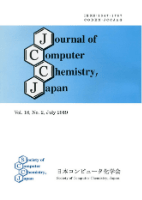
Journal of Computer Chemistry-Japan
Pioneering New Paths in Molecular Modeling and Drug DiscoveryJournal of Computer Chemistry-Japan, published by SOC COMPUTER CHEMISTRY, JAPAN, is a dedicated platform for researchers and professionals in the interdisciplinary fields of computational chemistry and chemical informatics. Though the journal does not currently provide open access, it maintains a rigorous selection process for contributions, ensuring the publication of high-quality, peer-reviewed research. With a focus on advancing computational methods and techniques to solve complex chemical problems, the journal aims to bridge the gap between theoretical chemistry and practical applications, making it an invaluable resource for academics and industry professionals alike. As the complexity of chemical systems continues to rise, the relevance of computational approaches in material science, drug discovery, and molecular modeling has never been more critical. Researchers are encouraged to engage with the contents of this journal, which showcases innovative studies, methodologies, and discussions relevant to the evolving landscape of computer-aided chemistry.
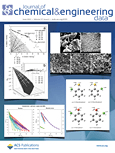
JOURNAL OF CHEMICAL AND ENGINEERING DATA
Advancing Knowledge in Chemical Engineering and Data ScienceThe Journal of Chemical and Engineering Data (ISSN: 0021-9568, E-ISSN: 1520-5134) is a prestigious publication by the American Chemical Society, dedicated to disseminating high-quality research within the fields of chemical engineering and chemistry. With its history dating back to 1956, the journal has evolved to encompass a wide array of topics essential to the advancement of both disciplines, reaching an impressive convergence year of 2024. Positioned in the Q2 quartile for both Chemical Engineering and Chemistry, it boasts a commendable ranking of 95th out of 273 in General Chemical Engineering and 146th out of 408 in General Chemistry, reinforcing its significance within the academic community. As a vital resource for researchers, professionals, and students alike, the journal encourages rigorous submissions that contribute to the understanding and application of chemical and engineering data, despite its traditional access model. By bridging theoretical insights with practical applications, the Journal of Chemical and Engineering Data remains an indispensable tool for those seeking to drive innovation and efficiency in the chemical sciences.

JOURNAL OF THE CHILEAN CHEMICAL SOCIETY
Advancing Chemistry through Collaborative Research.The Journal of the Chilean Chemical Society, published by the Sociedad Chilena de Química, serves as a premier platform for disseminating significant research findings in the field of Chemistry. With an ISSN of 0717-9707, this journal has established its presence since 2003, providing open access to a diverse range of studies and advancements in this vital scientific domain. It currently holds a Q3 category ranking in Chemistry (miscellaneous) and ranks 196 out of 408 in the general chemistry category on Scopus, indicating its valuable contributions to the field. Through the journal, researchers, professionals, and students are encouraged to engage with cutting-edge research and foster collaboration among the scientific community in Chile and beyond. The society's commitment to excellence ensures that articles published reflect high-quality research, underpinning the journal’s role in shaping knowledge and innovation in chemistry.
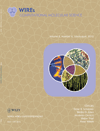
Wiley Interdisciplinary Reviews-Computational Molecular Science
Advancing Molecular Insights through Computational InnovationWiley Interdisciplinary Reviews: Computational Molecular Science is a premier journal published by WILEY, dedicated to the intersection of computational techniques and molecular science. Boasting an impressive impact factor and consistently ranking in the Q1 category across several key disciplines including Biochemistry, Computational Mathematics, Computer Science Applications, Materials Chemistry, and Physical and Theoretical Chemistry, this journal plays a crucial role in disseminating high-quality research that bridges multiple fields. With its focus on providing a platform for interdisciplinary dialogue and innovative computational solutions, it serves as an essential resource for researchers, professionals, and students eager to push the boundaries of molecular science. While the journal does not currently offer open access, it remains a vital conduit for scholarly communication, fostering advancements in understanding molecular interactions through computational methods. The journal is based in the United States, contributing to its global outreach and impact in the scientific community.

JOURNAL OF MATHEMATICAL CHEMISTRY
Pioneering Research at the Nexus of Math and ChemistryJOURNAL OF MATHEMATICAL CHEMISTRY is a prominent peer-reviewed journal published by Springer, dedicated to the field of mathematical chemistry. With an established history dating back to 1987, this journal serves as a vital platform for researchers to disseminate innovative findings and methodologies that combine the principles of mathematics with chemical science. Currently, it holds a commendable impact factor and ranks in the Q2 category for both applied mathematics and miscellaneous chemistry in 2023, showcasing its influence within these disciplines. The journal is indexed under Scopus, with notable rankings that place it in the top quartile among related works, ensuring high visibility and academic rigor. While access to its content is not open, the journal maintains a dedicated readership of professionals, researchers, and students eager to explore the computational and theoretical aspects of chemistry. The JOURNAL OF MATHEMATICAL CHEMISTRY continues to enrich the scientific community by fostering interdisciplinary collaboration and advancing quantitative approaches in chemical research.
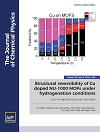
JOURNAL OF CHEMICAL PHYSICS
Exploring the Dynamics of Matter and EnergyJOURNAL OF CHEMICAL PHYSICS, published by AIP Publishing, stands as a premier scholarly source within the realms of physical and theoretical chemistry, as well as physics and astronomy. With an enduring history dating back to 1933 and converging until 2024, this journal has established itself as a cornerstone of the scientific community, evidenced by its prestigious Q1 categorization in multiple fields, including medicine and general physics. It is ranked 37th out of 243 in the general physics and astronomy category and holds a commendable 39th position in physical and theoretical chemistry according to Scopus rankings, highlighting its significant impact in these disciplines. Although not an open-access journal, it caters to a wide audience of researchers, professionals, and students seeking to deepen their understanding of the interactions and dynamics of chemical systems. With its expertly curated content, the JOURNAL OF CHEMICAL PHYSICS continues to play a vital role in advancing knowledge and fostering innovation across its core subjects.
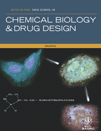
Chemical Biology & Drug Design
Elevating the standards of biochemistry and drug development.Chemical Biology & Drug Design, an esteemed publication by WILEY, serves as a vital platform for the dissemination of pioneering research in the interdisciplinary fields of biochemistry, drug discovery, molecular medicine, organic chemistry, and pharmacology. With a dedicated commitment to advancing the understanding of chemical interactions and drug development, this journal not only fosters innovation but also bridges the gap between theoretical research and practical applications. It boasts an impressive impact factor and is recognized in the 2023 category quartiles as Q3 in Biochemistry and Molecular Medicine, and Q2 in Drug Discovery, Organic Chemistry, and Pharmacology, indicating its relevance and influence in these crucial areas. The journal’s rankings across various Scopus categories further solidify its position as a reputable resource for researchers, professionals, and students striving to stay at the forefront of medicinal chemistry and drug design. While primarily traditional access-based, the journal's evolving scope from 2006 to 2024 ensures an ongoing contribution to essential scientific dialogue, making it an indispensable read for those committed to advancing health sciences.
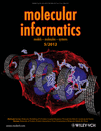
Molecular Informatics
Empowering Interdisciplinary Collaboration in Molecular InformaticsMolecular Informatics is a prestigious journal published by WILEY-V C H VERLAG GMBH, dedicated to advancing the fields of computational analysis and molecular modeling. As a key resource in the realms of Computer Science Applications, Drug Discovery, Molecular Medicine, Organic Chemistry, and Structural Biology, this journal is recognized for its significant contributions and is ranked in the Q2 and Q3 categories across multiple disciplines, positioning it among the leading journals for researchers and academics. With an impressive track record since its inception in 2010 and converging its contributions until 2024, Molecular Informatics aims to bridge the gap between computational techniques and biological applications, promoting interdisciplinary collaboration and innovation. Accessible to a global audience, the journal reflects a commitment to advancing science through open access options, making cutting-edge research available to students, professionals, and decision-makers alike. This journal serves as an indispensable platform for disseminating high-quality research and fostering the development of new theoretical and practical frameworks in molecular informatics.